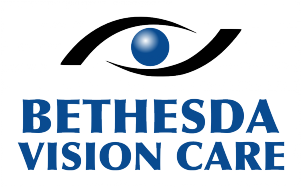Advanced Solutions for Keratoconus: Specialty Contact Lenses
 Find relief and visual clarity with specialty contact lenses for Keratoconus at Bethesda Vision Care. From gas-permeable and scleral lenses to soft specialty contacts, we have the expertise to provide effective solutions for Keratoconus and other challenging eye conditions. Visit our Bethesda eye clinic and regain comfort and clear vision with specialty contact lenses.
Find relief and visual clarity with specialty contact lenses for Keratoconus at Bethesda Vision Care. From gas-permeable and scleral lenses to soft specialty contacts, we have the expertise to provide effective solutions for Keratoconus and other challenging eye conditions. Visit our Bethesda eye clinic and regain comfort and clear vision with specialty contact lenses.
Understanding Keratoconus and Its Causes
Keratoconus is a progressive eye disease that affects the cornea, the eye’s clear front surface. The cornea becomes distorted and assumes a cone-like shape, causing light rays to be improperly focused onto the retina. Patients may experience symptoms like blurry vision, glare, and increased light sensitivity. Nearsightedness and astigmatism are common vision problems associated with Keratoconus.
While the exact cause of Keratoconus remains unknown, several factors have been identified as potential contributors.
- Genetic Predisposition: Some individuals with the disease have a family history of it.
- Oxidative Damage: Oxidative damage to the cornea can weaken the corneal tissue, contributing to the development of Keratoconus.
- Overexposure to Ultraviolet Rays: Excessive exposure to ultraviolet (UV) rays has been associated with an increased risk of Keratoconus.
- Chronic Eye Irritation: Factors like chronic eye irritation, frequent eye rubbing, and wearing poorly fitted contact lenses have been linked to the development and progression of the condition.
While these factors may contribute to the development of keratoconus, each case is unique. At Bethesda Vision Care, our advanced diagnostic technology allows us to provide personalized solutions tailored to each patient’s needs. If you have Keratoconus or suspect you may have the condition, schedule an appointment with our Bethesda optometrists.
Keratoconus Treatment in Bethesda
When managing Keratoconus, various treatment options are available depending on the severity of the condition.
In mild cases, eyeglasses or soft contact lenses may be sufficient to provide clear vision. Custom-made gas-permeable contact lenses are often recommended for more advanced cases to improve vision and provide better corneal support. Specialty scleral, soft, or hybrid contact lenses may also be prescribed for enhanced comfort and vision. In severe and advanced cases, surgical interventions may be necessary to replace damaged corneal tissue.
The Bethesda Vision Care team will work closely with you to determine the most suitable treatment approach for your needs. Regular follow-up visits are essential to monitor the condition’s progression and ensure optimal vision, comfort, and eye health.
Specialty Contact Lenses for Treating Keratoconus
Scleral Contact Lenses
Scleral contact lenses offer a promising solution for individuals with Keratoconus who struggle with comfort and irregularly shaped corneas. These large-diameter rigid GP lenses rest comfortably on the sclera, providing a perfectly formed optical surface to replace the distorted cornea. Scleral lenses offer a crisp vision that may not be achievable with eyeglasses or other forms of vision correction. At Bethesda Vision Care, we utilize top-quality scleral lenses from trusted brands like Acculens, Zen Lens, and Boston Sight Lens. With our expertise in fitting and prescribing scleral lenses, we aim to provide effective vision correction and enhanced comfort for patients with Keratoconus.
Rigid Gas-Permeable (GP)
Rigid gas-permeable (GP) contact lenses are a common and effective treatment option for keratoconus. These lenses create a smooth and artificial surface that helps mask the irregular shape of the keratoconic cornea, resulting in improved vision quality. Fitting GP lenses for Keratoconus can be a complex and time-consuming process, but the results are well worth it.
Specialty Soft Contact Lenses
Specialty soft contact lenses are designed with thicker materials and unique designs to correct the high degree of astigmatism associated with Keratoconus. The specialized construction of these lenses allows them to conform to the shape of the irregular cornea, providing a customized fit and optimal visual correction. By working closely with our Bethesda team, you can find soft contact lenses that suit your individual needs.
Hybrid Contact Lenses
Hybrid contact lenses feature a hybrid design combining the benefits of rigid gas-permeable (GP) and soft contact lenses. The central portion of the lens is made of a rigid material, providing excellent visual clarity. Surrounding the center is a soft peripheral “skirt,” enhancing comfort and ensuring a secure fit. These lenses are an attractive option for Keratoconus patients seeking clear vision without sacrificing comfort.
“Piggybacking” Contact Lenses
“Piggybacking” contact lenses are used for Keratoconus patients who find wearing a gas-permeable (GP) contact lens uncomfortable. In this method, a soft contact lens is first placed on the eye, acting as a cushioning pad, followed by a GP lens fitted over the soft lens. The purpose of piggybacking is to provide a layer of comfort and alleviate the discomfort of rigid GP lenses. This method is, however, less common today due to advancements in lens designs and materials.
Keratoconus Treatment: What’s New?
Advances in Keratoconus treatment have introduced new options to improve visual acuity and comfort for patients.
The ClearKone hybrid contact lens, developed by SynergEyes, combines a rigid center with a soft peripheral “skirt,” providing improved vision and comfort. Another option is UltraHealth’s silicone-hydrogel soft skirt material, allowing greater oxygen delivery to the eye.
In cases where specialty contact lenses are not sufficient, surgical interventions may be considered. Intacs prescription inserts, or intrastromal corneal ring segment implantation, can be an alternative to corneal transplants. These implants improve visual acuity and are removable and exchangeable.
Corneal collagen cross-linking (CXL) is a non-invasive procedure that strengthens the cornea using riboflavin and UV light. It has received FDA approval and can potentially eliminate the need for a corneal transplant.
Consult with our Bethesda eye doctors to determine the most suitable treatment approach based on your circumstances.

